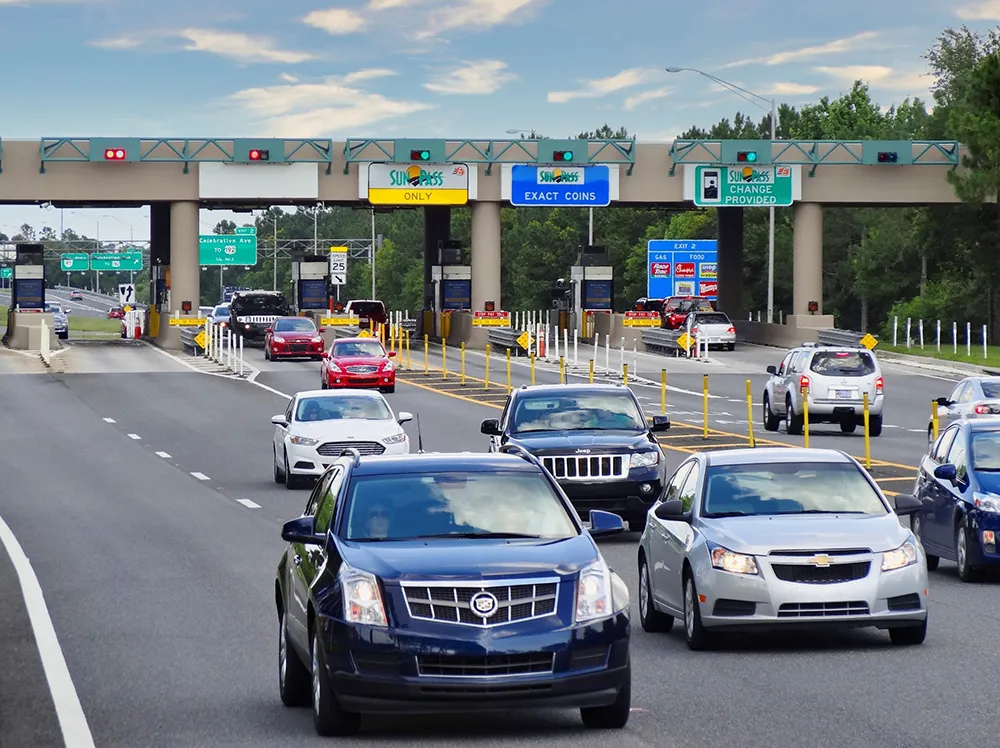Toll roads in Orange County California are due to go cashless and all-electronic (AET) in the spring of 2014 according to an announcement from the Transportation Corridors Agencies (TCA) which has just has just approved a contracts with TransCore. The contract is for US$36.42 million and provides for provision of a new toll system that is regular AET mix of RFID transponder tolling and image based licence plate reads in an open road setting. TransCore will also maintain the system for ten years. A statement
April 17, 2013
Read time: 2 mins

Toll roads in 2044 Orange County California are due to go cashless and all-electronic (AET) in the spring of 2014 according to an announcement from the Transportation Corridors Agencies (TCA) which has just has just approved a contracts with 139 Transcore. The contract is for US$36.42 million and provides for provision of a new toll system that is regular AET mix of RFID transponder tolling and image based licence plate reads in an open road setting. TransCore will also maintain the system for ten years.
A statement by TCA says: "Converting to AET will reduce TCA’s total cost of operations, increase net revenue and offer new customer service options."
Jim Gallagher, TCA’s chief toll operations officer commented: “The toll roads have operated with the same basic tolling technology since the first toll road segment opened in 1993. While the current technology is functional and well maintained, tolling technology has progressed and the agencies’ equipment continues to age. It’s time to upgrade our systems and technology and we are eager to move forward with TransCore as one of our key partners as we convert to AET.”
TCA says AET will reduce operating costs by US $49.3 million over ten years, suggesting that current operating costs of US $36 million per year in 202 should be reduced to about US$31 million. Toll revenues are US $237 million a year. The two toll roads carry out about 82m transactions a year or about an average 225,000 a day. 81 per cent of these are by transponder, 17 per cent cash, and the rest are violations. While AET ends cash collection on the toll roads there will probably be a variety of off-road payment options at nearby convenience stores and gas stations.
The decision to go all-electronic was made in June 2012, when it was felt that 34 lane controllers in mainline toll lanes and 36 controllers in ramp lanes could be simplified into a zonal system on the mainlines with only twelve zones for tolling.
A statement by TCA says: "Converting to AET will reduce TCA’s total cost of operations, increase net revenue and offer new customer service options."
Jim Gallagher, TCA’s chief toll operations officer commented: “The toll roads have operated with the same basic tolling technology since the first toll road segment opened in 1993. While the current technology is functional and well maintained, tolling technology has progressed and the agencies’ equipment continues to age. It’s time to upgrade our systems and technology and we are eager to move forward with TransCore as one of our key partners as we convert to AET.”
TCA says AET will reduce operating costs by US $49.3 million over ten years, suggesting that current operating costs of US $36 million per year in 202 should be reduced to about US$31 million. Toll revenues are US $237 million a year. The two toll roads carry out about 82m transactions a year or about an average 225,000 a day. 81 per cent of these are by transponder, 17 per cent cash, and the rest are violations. While AET ends cash collection on the toll roads there will probably be a variety of off-road payment options at nearby convenience stores and gas stations.
The decision to go all-electronic was made in June 2012, when it was felt that 34 lane controllers in mainline toll lanes and 36 controllers in ramp lanes could be simplified into a zonal system on the mainlines with only twelve zones for tolling.








